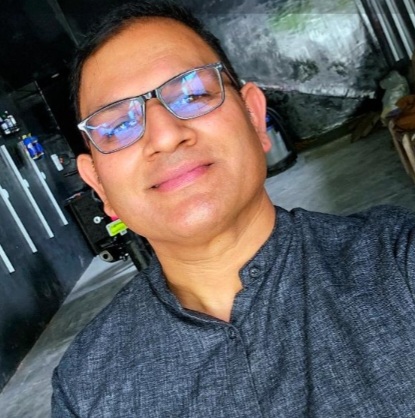An Ode to the Old Generation and Their Youthful Memories of August 15 and January 26
Remember the good old days, when you were just a child, back in the days when "pressing" your pajamas wasn’t a thing, and you’d head off to school with a simple kurta-pajama set?
Those days when a few coins from your parents or grandparents felt like a treasure, and the journey to school was filled with the taste of little orange-flavored candies or those fish-shaped sweet treats?
The memories of those sweet treats—cotton candy spun on a stick, looking like pink clouds of joy, and the special treat of sugar-coated puffs you received when you passed your exams—are still fresh, aren’t they?
What about the ink stains on your school bag?
No matter how tight the rubber cap on the ink bottle, it always managed to leave a mark.
The pens with nibs that needed constant dipping into ink, the slate boards covered in clay, and the fine lines drawn with carbon rods from batteries—surely, you remember that?
And those early mornings, picking flowers from the dew-kissed meadows?
The taste of tea in a steel glass, the leftover maize bread with a chili-salt paste ground on a stone slab for breakfast, accompanied by buttermilk—those were the simple pleasures of life.
Do you recall the thick chapatis cooked on a traditional clay stove, often with a bit of ash on them, smeared with a handful of butter?
The memory of adjusting the TV antenna to catch a clear signal—one person on the roof, another in between, and a third turning the dial on the television.
The triumphant shout of "It's clear!" followed by "No, it’s not—turn it a bit more!"—those were the golden days of our childhood.
But look at what you’ve done to your children! You walked to school, which is why you’re still fit, but you’ve confined your children indoors.
You nourished yourself with maize bread, butter, and buttermilk, but you feed your kids momos, chips, and the occasional pizza. You’ve killed the spirit in them.
But let's leave that for another day.
Now, think hard. When did you first encounter that strange word, "patriotism"? I bet it was after your family got a television.
I remember our first shuttered TV arrived in 1984—an Uptron, perhaps. Doordarshan had just four and a half hours of programming from 5:00 PM to 9:30 PM.
There were farm discussions, two major news bulletins, serials like "Hum Log," and the much-awaited "Chitrahaar" on Wednesdays and Saturdays, with a Hindi movie on Sundays.
But there were two days in the year that stood out: January 26th and August 15th.
No school on these days. I vividly remember Doordarshan's live broadcast of the parade from Delhi.
We’d wake up at 6 AM, eyes glued to the screen. Even my grandfather, who usually cursed the TV and everyone watching it, would join us on these two days, proudly reminiscing, "Look, that’s Assam’s tableau. I visited Assam when I was in the British Army."
Those broadcasts were something special. The speeches from the Red Fort, the display of military might, the march past of the army, the roaring fighter jets, and the colorful tableaux of different states and departments left a lasting impression on us.
This was the moment when my generation and I first felt the essence of our country through the TV screen.
We learned about India’s diversity—its languages, cultures, dances, and folk songs—all from that little screen.
And to be honest, many of us kids would stand up and salute the marching Indian soldiers on TV. That was our first encounter with the strange yet profound concept of "patriotism."
Perhaps that was when we first felt love for our country and a sense of pride in being Indian.
It's amazing, isn’t it? How just "two hours of TV" could instill such a deep sense of awareness in us.
And today!
Thanks to bizarre experiments in education and 24-hour TV channels, kids have all but disappeared from the screens on January 26th and August 15th.
Now, everyone must go to school on these days—to hoist the flag, sing songs, and perform half-hearted dances to Bollywood songs.
Every school must endure a lackluster performance of "Desh Rangila, Rangila, Desh Mera Rangila" from the movie "Fanaa."
After spending three or four hours at school, they head back home, either on foot or crammed into buses, have lunch, and take a nap.
And that’s the end of their Republic Day and Independence Day.
Listen up, here's a free piece of advice.
Stop making kids go to school on August 15th and January 26th. Let them stay at home.
Tell the parents to show them the live broadcast from Vijay Path in Delhi. Explain what’s happening on the screen.
Let their hearts swell with pride as they watch the marching military columns. Let their stomachs tighten with excitement at the sight of India’s scientific achievements.
Let their arms twitch in excitement as they witness the aerial stunts of the Indian Air Force.
Let their consciousness expand as they watch the tableaux of the various states. Let the reality of India's diversity fill their minds. Let the scent of our cultural heritage fill their senses.
Otherwise, these kids won’t even know the difference between Independence Day and Republic Day.
Innovating in education doesn’t mean throwing everything old away.
(Sachin Thakur is a Lecturer of Physics at GSSS Dharamshala)




